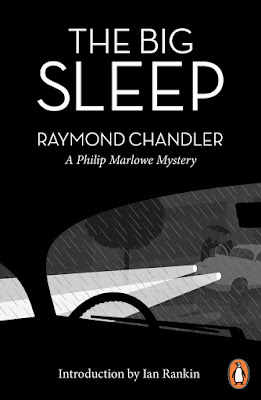I’ve already mentioned how I started reading Chandler
and Hammett because of Pulp Fiction’s
poster.
Yes, Philip Marlowe is the epitome of cool:
hard when he needs to, suave in the few cases when he should be so, gifted with
women, tough with thugs, and – ultimately – always right, even when he’s wrong.
But in Chandler’s books the narrator is (often, if not always – I don’t know as
I haven’t read all his books) Marlowe himself. And to me that makes him sound,
well, like he’s trying a bit too hard. I mean, if you’re trying to show how
great you are, you surely don’t need to tell your reader how wonderfully witty
your deadpan one-liners actually are, do you? Shouldn’t your actions do the
talking for you, instead of your unreliably biased pen?
This is just a thought: Chandler’s books are
wonderfully entertaining (although maybe not great literature), but a third
person narrator would actually add swag (if it was ever needed) to his
detective...



